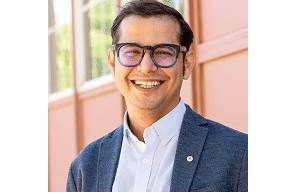Here’s the introduction to a great piece (It is SLAW) with lots of great sources..
I teach a class at the University of Arizona College of Law called, Foreign, Comparative and International Legal Research. In my class, I discuss with the students the different ways in which this type of advanced legal research is dependent on constantly moving variables and components. Beyond a handout of the top five sources to consult, I instead strive to make the students understand that they need to create a research strategy, keep track of changes on foreign and international law, and consult a significant amount of non-legal information. All of this needs to be done while always evaluating sources of information and at times, in languages you’re not fluent in. I briefly touched upon these issues in my previous post on Nicaragua and Haiti.
]
When it comes to the current Russian invasion of Ukraine, there are three situations which I’m following very closely: accessing trustworthy information, documenting what is happening, and the preservation of information. As a law librarian, these three situations all have a particular angle related to the law, namely accessing reliable legal and government information during war, documenting atrocities and potential war crimes in order to use this information as evidence in the future, and preservation of legal information in digital format which can be made available to everyone immediately as well as later on. In this post, I will talk briefly about these three areas and enumerate several sources which can provide further information. As usual, I invite all readers to mention and share other relevant links or sources in the comments section.
Accessing Trustworthy Information
In times of war, accessing information coming from reliable sources becomes literally a question of life or death. However, easily accessible online information in websites, news sources or in any social media platforms becomes a puzzle to decipher and in dire need of evaluation. If you have been following the Russian invasion of Ukraine on any platform, be it blogs, traditional media outlets or social media, you know that the information can be contradictory, incomplete and tainted with misinformation. Beyond these challenges, there is also the risk of intentional spread of false information or disinformation and propaganda. Oksana Brui, Director of the Ukrainian Library Association alluded to this in a letter to the international librarianship community. Furthermore, several Ukrainian government websites have been hacked to spread false information to the Ukrainian people. Despite these cyber attacks, the Ukrainian Government official page, and the State Service of Special Communications and Information Protection of Ukraine are both using their corresponding Twitter accounts to debunk false information as quickly as possible (i.e. https://twitter.com/Ukraine and https://twitter.com/dsszzi). Official government publications such as Golos Ukrainy (the Voice of Ukraine), Ofitsiyny Visnyk Ukrainy (Official Reporter of Ukraine) and the Ukrainian Parliament’s legislation database are still functioning despite Russia’s attacks on internet infrastructure and service providers.
As a law librarian, my goal is to empower legal researchers to be able to evaluate sources themselves whether it’s a social media post, news article or any secondary source of information they come across.
Read full article
Accessing, Documenting and Preserving Information on Ukraine





